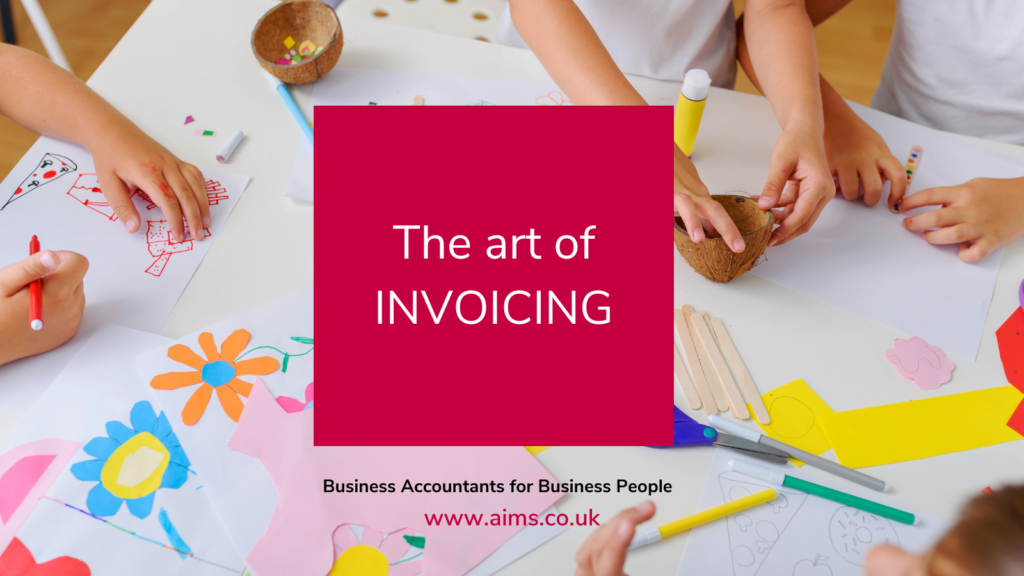
UK law stipulates what information must be included by limited companies and sole traders. Invoicing customers can be one of the least enjoyable aspects of life as a small business owner – but prompt, accurate invoicing is essential for your cash flow and there is an art to invoicing!
We’ve explained below the 9 things you need to include on your invoices, and some tips on taking the pain out of invoicing. As always, our team of AIMS accountants are here to help you, so do get in touch if you need a friendly, proactive accountant on your side.
This is slightly different for sole traders and limited companies.
Limited companies must include the following 9 things on an invoice:
· a unique identification number
· your company name, address and contact information
· the company name and address of the customer you’re invoicing
· a clear description of what you’re charging for
· the date the goods or service were provided (supply date)
· the date of the invoice
· the amount(s) being charged
· VAT amount if applicable
· the total amount owed
Sole traders must include the same 9 details but must also include your name and any business name being used, as well as an address where any legal documents can be delivered to you.
If you and your supplier and both registered for VAT, you must provide an invoice with the above information by law.
Include Your Payment Date
Almost half of all invoices are paid late in the UK. For SMEs like you, this can be damaging to cash flow. You still have payments to make and you might rely on your suppliers’ payments to meet your own payment deadlines.
If you miss payment deadlines because of your customers, you might get charged late fees which can be hugely detrimental to your cash flow and your confidence.
When sending out invoices, include any payment terms around late payment penalties to encourage your customers to pay you on time. You can also make sure you’re paid on time by shortening the payment term. This used to be within 30 days on average, but you can shorten this to 2 weeks or even 1 week to make sure you’re not left waiting for 6 or 7 weeks!
Use direct debits
Finally, another way to make sure you get paid on time and therefore, you can pay your bills in time, is to collect payments from customers via direct debit.
This means you’ll know exactly when you’re getting paid in the month so you can pay your bills accordingly and budget accurately. This will help your cash flow enormously.
In summary…
Payment processing and invoicing can be dull but it’s incredibly important. Don’t accept late payments and specify this on your invoices. Invoke shorter payment terms if you’re having problems with late payments. Remember that you also have direct debits at your disposal and they benefit you and your customers as everything is automated.
With these processes sorted, you’ll never worry about late fees or have any payment problems again!
To find your nearest AIMS Accountant who can help implement these things and take control of them so you don’t have to, visit https://www.aims.co.uk/find-your-local-aims-accountant.